As an avid user of game development engines and a laptop enthusiast, I understand the importance of finding the best laptop for Unreal Engine 5. This powerful game engine requires a machine with the right combination of performance, portability, and reliability. Whether you're a seasoned game developer or just starting your journey in the world of game design, having a laptop that can efficiently run Unreal Engine 5 is crucial to your success.
When searching for the best laptop for Unreal Engine 5, I've taken the time to review an extensive spreadsheet of recent laptop releases, comparing specs and reviews from both professionals and real-world users. In doing so, I've narrowed down the top laptops based on their ability to handle the demanding workload of Unreal Engine 5, while also considering factors like battery life, display quality, and price ranges.
As you're undoubtedly aware, Unreal Engine 5 has brought with it groundbreaking features like Nanite Virtualized Geometry and Lumen Global Illumination, which have raised the bar for real-time graphics. Consequently, you'll want a laptop with a powerful GPU and CPU to handle these cutting-edge technologies, as well as ample RAM and fast storage for seamless development. Stay tuned as we delve into the details, helping you find the perfect laptop to bring your game development dreams to life with Unreal Engine 5.
Powerful Processors
The central processing unit (CPU) is one of the most important components when it comes to running Unreal Engine 5 (UE5) on Windows. In the processor market, there have been some exciting changes in the past year. Apple released their own ARM-based M1, M1 Pro, M1 Max, and M2 system-on-chip modules; they offer exceptional single-core performance and battery life. AMD has managed to take 20% of the CPU market, and have released the 6th generation Ryzen processors. Intel is set to release its 13th-gen processors soon, but the latest Intel processor currently available for laptops is 12th generation. The modern chips from both Apple and Intel are based on a hybrid performance/efficiency core design, which means that the cores can switch between performance and efficiency depending on the task at hand.
It’s important to understand why UE5 needs a fast processor, as this will help you make an educated decision when it comes to choosing one for your laptop or workstation. UE5 is a game engine that requires a lot of processing power for its visual effects, 3D rendering, and physics simulations. It’s also capable of running demanding real-time applications such as virtual reality (VR), augmented reality (AR), and mixed reality (MR). Therefore, it’s important to have enough computing power to handle the various tasks UE5 can throw at you.
Your budget will be an important factor in deciding which processor is right for you. If you’re looking for a gaming laptop, you should prioritize its graphics processing unit (GPU) over its CPU, since games rely heavily on graphics. However, if you’re looking for a workstation laptop, then it would be wise to prioritize the CPU over the GPU.
The best way to compare different processors is to use Cinebench R23, as this benchmark is widely used for 3D engines such as UE5. With that being said, here are my recommendations for each price bracket:
- Minimum: Intel Core i3-1115G4
- Recommended: Intel Core i5-10310U
- High-end: Intel Core i7-1180G7
For AMD laptops, I would recommend going with either a Ryzen 5 or Ryzen 7 processor, depending on your budget. Ryzen processors are good if you need a good battery life in a PC laptop. However, if you're looking for the best performance, then go for an Intel processor.
Graphic Power
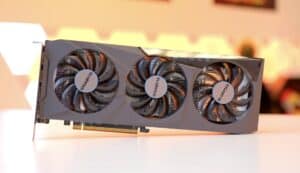
Whether you’re a casual gamer or a professional content creator, the Graphics Processing Unit (GPU) of your laptop is an important factor when it comes to choosing the right laptop for Unreal Engine 5 (UE5).
Nvidia continues to dominate the laptop GPU market, with its latest graphics cards being part of the RTX 30 series such as the RTX 3070 Ti. While Nvidia recently released its RTX 40 series, it has yet to make its way to laptops. Additionally, desktop GPUs are becoming increasingly power-hungry, causing the gap between laptop and desktop graphics cards to widen. To make matters even more complicated, Nvidia has discontinued its Max-Q label for its RTX graphics cards, leaving laptop manufacturers to determine the exact GPU wattage themselves.
Fortunately, UE5 is well-optimized for Nvidia graphics cards, so you can feel confident that most laptops with a Nvidia GPU will be able to run UE5 games without any issues. If you’re looking for a laptop that can run games, you’ll need a discrete GPU. If you’re looking for the best gaming laptop, look no further than the latest Nvidia RTX or AMD Radeon VII series GPUs.
To compare graphics cards, I use 3DMark to compare laptop graphics cards. It’s a well-known benchmark with plenty of results available online, but it doesn’t take into account all the nuances of real-world gaming performance. Therefore, I also use other more recent gaming benchmarks such as 3DMark Fire Strike and Unigine Heaven/Valley to supplement my laptop GPU rankings. Additionally, when choosing a gaming laptop, pay attention to its display panel type (IPS vs TN) for optimal image quality.
For a minimum gaming laptop GPU, I’d recommend a GeForce GTX 1650. For optimal performance, I’d suggest looking into the GeForce RTX 3050. And for the absolute best gaming experience and VR-ready content creation, check out laptops with the GeForce RTX 2060.
I’m not including my personal GPU recommendations in this table because everyone’s situation is unique and your personal budget, needs and preferences should be taken into consideration when shopping for a new laptop.
Boosting RAM
Unreal Engine 5 is a cutting-edge game engine that can take advantage of a powerful hardware setup, and it won't run properly on a laptop with an inadequate RAM setup. It's essential to know how much RAM you'll need for optimal performance.
Most mid-range laptops come with 16 GB of RAM and high-end – 32 GB or more. The latest-gen Intel and AMD CPUs support DDR4 and DDR5, though DDR5 is still quite expensive and needs time to mature as a technology.
Unreal Engine 5 is a hungry beast, and it's not going to get any lighter anytime soon. That means that you'll need a lot of RAM. 16 GB should be enough for most projects, but if you're working on a complex project with lots of assets, you might need 32 GB. The difference between DDR5 and DDR4 is minimal in terms of performance, so don't worry about it unless you can afford the upgrade (and don't forget to check if your motherboard supports it). If you're working with large scenes or have multiple VMs open at once, consider getting a laptop with 32 GB of RAM.
It's important to consider other factors when selecting RAM, such as clock speed and latency. However, these are minor factors compared to the amount of RAM.
What to expect at various price levels:
| Price Level | Average laptop prices | Recommended RAM |
|---|---|---|
| Budget | $600-$900 | 8 GB |
| Mid-range | $900-$1200 | 16 GB |
| High-end | $1200+ | 32 GB |
To summarize, when choosing RAM for an Unreal Engine 5 laptop, 8 GB is the absolute minimum and 16 GB should be enough for most projects. High-end laptops should be equipped with 32 GB or more for optimal performance. Just remember to check that your motherboard supports the RAM you're buying.
Unreal Answers
Q: Which laptop is best for Unreal Engine 5?
The best laptop for Unreal Engine 5 would be a high-end model with powerful hardware and excellent performance capabilities. You should consider laptops with at least an i7-1180G7 processor, 32 GB of RAM, and a GeForce RTX 2060 graphics card for optimal performance. Keep in mind that the best laptop for Unreal Engine 5 will depend on your specific requirements and budget.
What are the recommended laptop specs for Unreal Engine 5?
The recommended laptop specs for Unreal Engine 5 include an i5-10310U or better processor, 16 GB of RAM, and a GeForce RTX 3050 or better graphics card. These specifications should provide a good balance between performance and cost. However, for optimal performance, you may want to consider a laptop with a higher-end processor and more RAM.
Can Unreal Engine 5 run on a laptop?
Yes, Unreal Engine 5 can run on a laptop. However, it's important to note that the performance will vary depending on the laptop's hardware specifications. To ensure smooth operation, it's recommended to have a laptop with a powerful processor, sufficient RAM, and a capable graphics card.
What graphics card is needed for Unreal Engine 5?
Unreal Engine 5 requires a capable graphics card to handle the demanding visual effects and rendering tasks. For the best experience, it's recommended to have a laptop with at least a GeForce RTX 3050 graphics card or better. The RTX series from Nvidia offers advanced features such as real-time ray tracing and DLSS, which can greatly enhance the visuals and performance in Unreal Engine 5.
How much RAM do I need for Unreal Engine 5 on a laptop?
The amount of RAM you need for Unreal Engine 5 will depend on the complexity of your projects. For smooth performance, it's recommended to have at least 16 GB of RAM. However, if you're working on larger-scale projects or dealing with high-resolution assets, 32 GB of RAM or more would be beneficial.
Is a gaming laptop suitable for Unreal Engine 5 development?
Yes, a gaming laptop can be suitable for Unreal Engine 5 development. Gaming laptops are often equipped with powerful hardware, including high-performance processors, ample RAM, and dedicated graphics cards. These features are crucial for running Unreal Engine 5 smoothly and efficiently. However, it's important to consider factors such as cooling and battery life, as intensive workloads in Unreal Engine 5 may put a strain on these aspects of the laptop.
Can I develop games with Unreal Engine 5 on a budget laptop?
While it's possible to develop games with Unreal Engine 5 on a budget laptop, it may not offer the optimal experience. Budget laptops generally have limited processing power and may lack the necessary specifications, such as a dedicated graphics card, to handle the demanding tasks of Unreal Engine 5. For a smoother workflow and better performance, it's recommended to invest in a laptop with higher-end specifications.
What are the minimum requirements to run Unreal Engine 5 on a laptop?
The minimum requirements to run Unreal Engine 5 on a laptop include an i3-1115G4 or better processor, 8 GB of RAM, and a GeForce GTX 1650 or better graphics card. These specifications will allow you to run Unreal Engine 5, but keep in mind that performance may be limited, and you may experience slowdowns or lag when working on complex projects.
Are there any specific laptop brands or models recommended for Unreal Engine 5?
There are several laptop brands and models that are recommended for Unreal Engine 5 development. Some notable options include the Acer Predator Helios 16 Ph16-71 Ph16-71-71av for its powerful hardware and performance, the HP Victus for its balance between cost and specifications, and the ASUS TUF F15 FX507ZM-ES74 and ASUS ROG Strix G15 G513RM for their high-end features and capabilities. For those who require top-of-the-line performance, the Lenovo Legion Pro 7i 16 and Dell XPS 17 9720 are excellent choices, albeit at a higher price range.
What storage capacity is ideal for working with Unreal Engine 5 on a laptop?
The ideal storage capacity for working with Unreal Engine 5 on a laptop will depend on the size of your projects and the amount of assets you need to store. As a general guideline, it's recommended to have at least 512 GB of SSD storage for faster data access and improved performance. However, if you're working on
6 Best Laptops for Unreal Engine 5
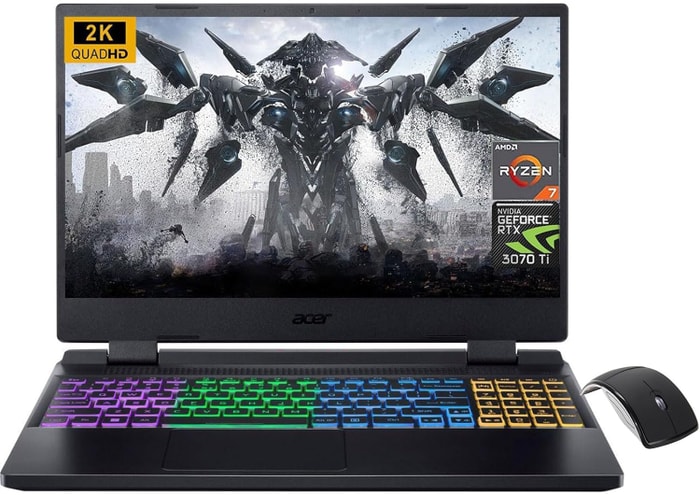 $680
$6801.acer Nitro 5
Unreal Engine 5 laptop- Exceptional processor (Ryzen 7 6800H)
- Great graphics card (RTX 3070 Ti)
- Exceptional display (15.6)
- One of most affordable laptops with an AMD Ryzen 7 processor
- Ordinary memory amount (32GB)
- No IPS Panel (worse contrast)
Alternatives
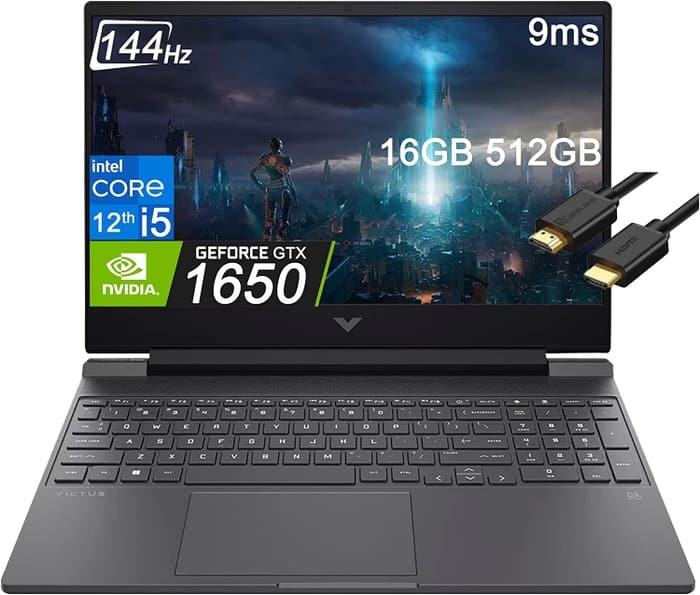
HP Victus 15t
- Low price
- Solid array of ports
- Weak GPU yields unsatisfactory frame rates
- Screen only so-so despite 144Hz refresh rate
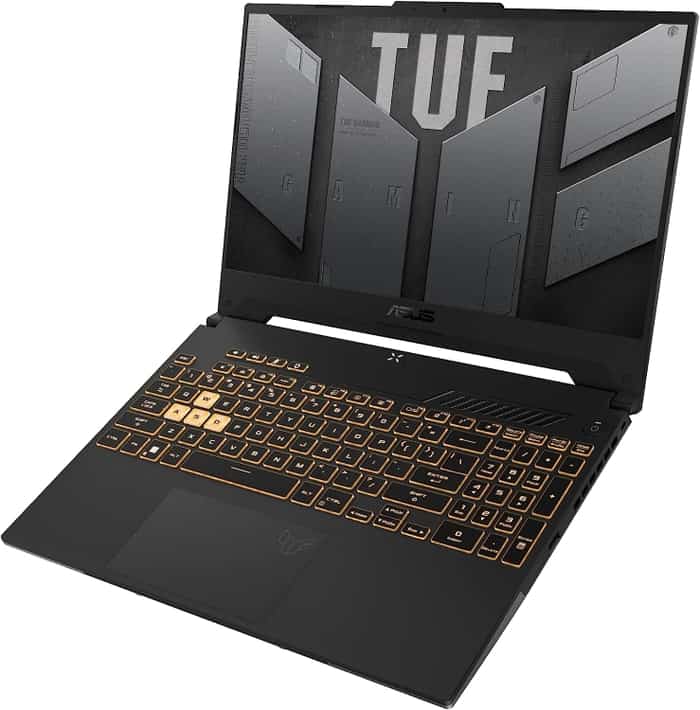
2.ASUS TUF F15 FX507VU-ES53
ASUS TUF F15 FX507VU-ES53: A powerful budget gaming laptop with some room for improvement.- Superb 1080p gaming performance
- Strong productivity capabilities
- Great price
- Poor webcam, touchpad, and speakers
- Some games appear washed out on display
Summary
The ASUS TUF F15 FX507VU-ES53 is a budget gaming laptop that excels in 1080p gaming and offers strong productivity capabilities. It is attractively priced, but its webcam, touchpad, and speakers could use improvement.
Alternatives

ASUS TUF Dash F15
- Lightweight and well-built
- Good performance for the price
- Some ergonomic quirks
- Ports squeezed together on the left edge

3.Lenovo Legion 5i Pro 16
Lenovo Legion 5i Pro 16: A powerful gaming laptop with a sleek design and ample connectivity options.- Stylish, sleek form factor
- Gorgeous display
- Strong performance
- Quiet fans
- Webcam quality is poor
- Lacks biometric features
- SSD is slightly slower than competition
Summary
The Lenovo Legion 5i Pro 16 is an impressive gaming laptop that combines powerful performance with a stylish design. It offers a stunning display, plenty of ports, and quiet fans. However, the webcam quality is disappointing, and it lacks biometric features.
Reviews
Alternatives
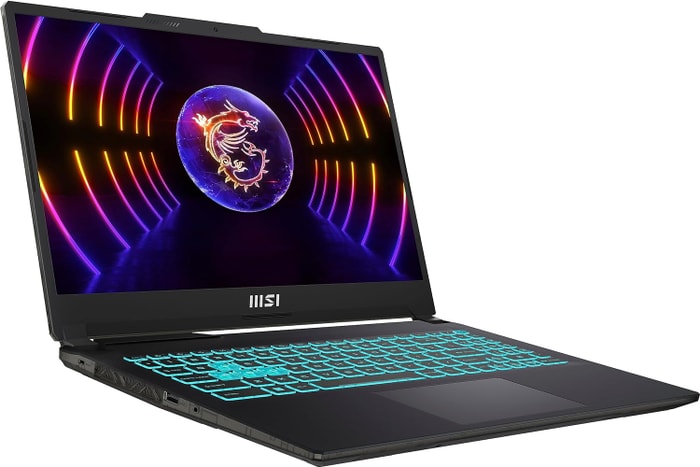 $1,430
$1,430MSI Cyborg 15
- Able to play at the highest 1080p settings
- Peppy processor for the money
- Display is dim and disappointing
- Sharp chassis edge can dig into wrists during typing

4.ASUS ROG Strix G15
ASUS ROG Strix G15: Unleash your gaming potential with high-performance CPU and GPU.- High-performance CPU and GPU
- Good workmanship and stable construction
- High-quality display
- Sophisticated design
- Skimpy connectivity
- Potential coil whine in certain situations
Summary
The ASUS ROG Strix G15 is a powerhouse gaming laptop equipped with an RTX 3000 GPU and a Ryzen 5000 CPU, delivering exceptional gaming performance. Its high-quality display, sophisticated design, and user-friendly maintenance make it a top choice for gamers. However, the limited connectivity and potential coil whine may be drawbacks to consider.
Reviews
Alternatives
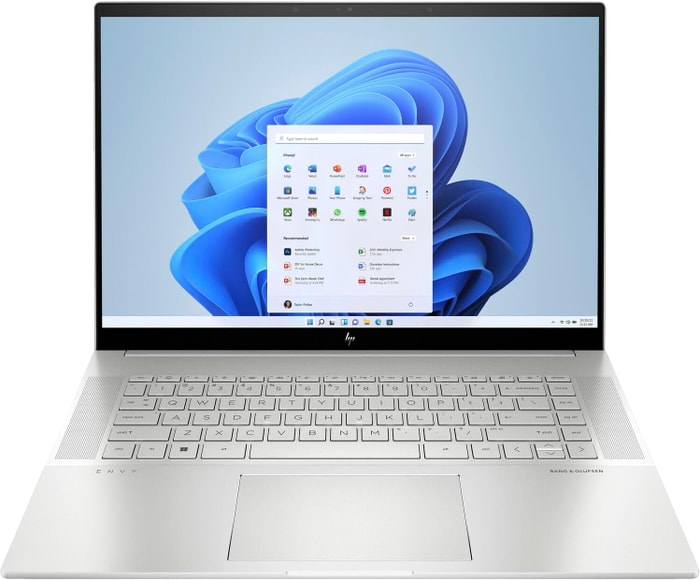 $1,800
$1,800HP Envy 16
- Plenty of CPU and GPU power
- New 120Hz screen refresh rate
- Merely adequate base screen
- Optional OLED has fewer pixels than before

5.Lenovo Legion Pro 7i 16
Lenovo Legion Pro 7i 16: Impressive performance at a justifiable price point.- Strong overall performance
- Big, bright, and fast display
- Per-key RGB lighting
- Some flex to keyboard deck
- Poor battery life
Summary
The Lenovo Legion Pro 7i 16 packs a punch with its powerful processor and graphics card, delivering impressive performance for gaming. Its sleek design and fair price make it an enticing option for those looking for a high-end gaming laptop.
Alternatives
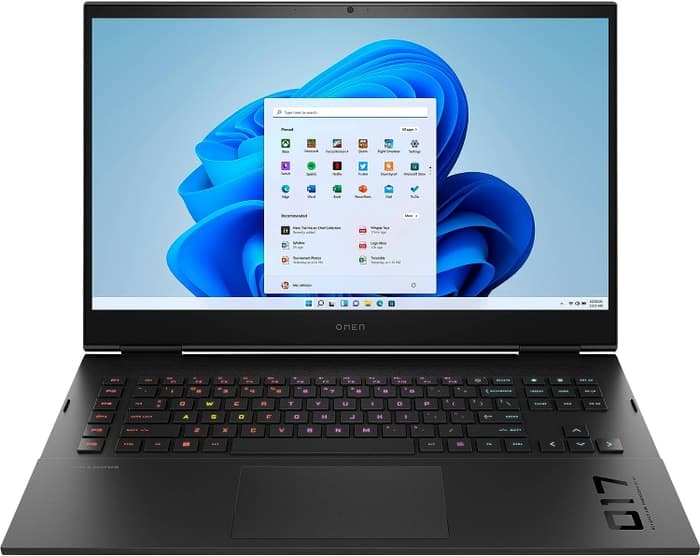
HP Omen
- Slim and relatively portable build
- Midrange gaming performance at a reasonable price
- All-AMD configuration is outpaced by Intel and Nvidia competitors
- Unimpressive 144Hz refresh rate and full HD resolution

6.HP Omen 17
HP Omen 17: A High-End Gaming Laptop for Video Processing and QHD Gaming.- QHD display with 165 Hz
- Expandable working memory
- Individual key illumination
- Thunderbolt 4 with Power Delivery
- Slightly below-average performance for a RTX 4080
- High noise level
- Clattery case
- Meager battery life
Summary
The HP Omen 17 is a high-end gaming laptop equipped with a Core i9-13900HX and GeForce RTX 4090, making it suitable for video processing, rendering, and QHD gaming. It features a QHD display with 165 Hz, expandable working memory, individual key illumination, and Thunderbolt 4 with Power Delivery.
Reviews
Alternatives
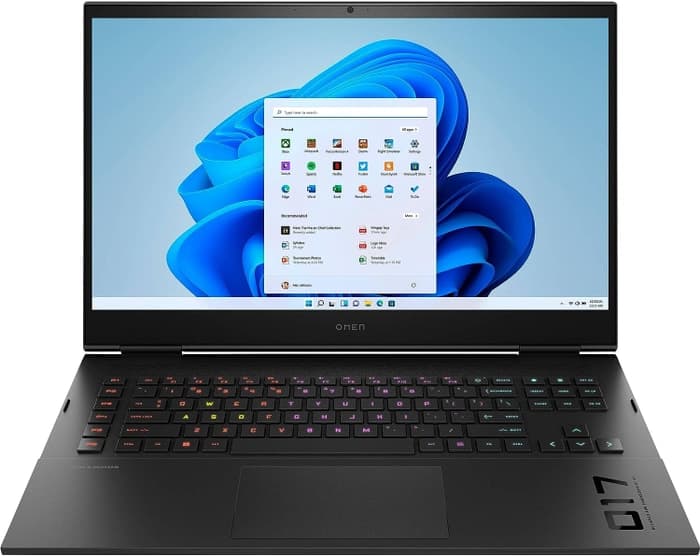
HP Omen
- QHD display with 165 Hz
- Advanced Optimus
Table of the Best Laptops for Unreal Engine 5
| Laptop | Price (approx) |
| acer Nitro 5 | $680 |
| ASUS TUF F15 FX507VU-ES53 | $1,100 |
| Lenovo Legion 5i Pro 16 | $1,300 |
| ASUS ROG Strix G15 | $1,750 |
| Lenovo Legion Pro 7i 16 | $3,390 |
| HP Omen 17 | $4,290 |





